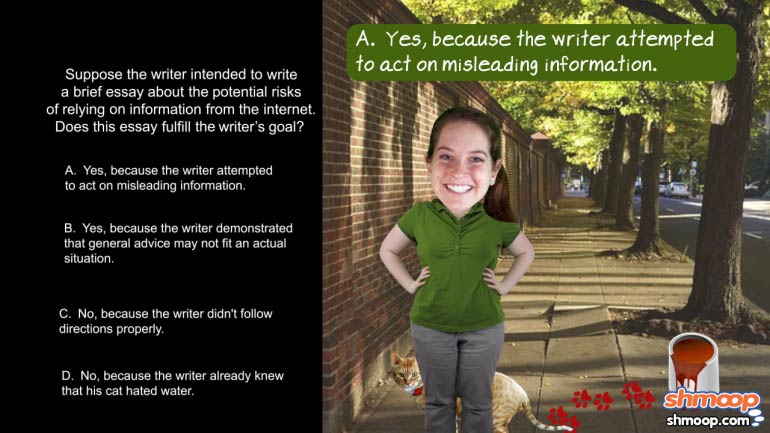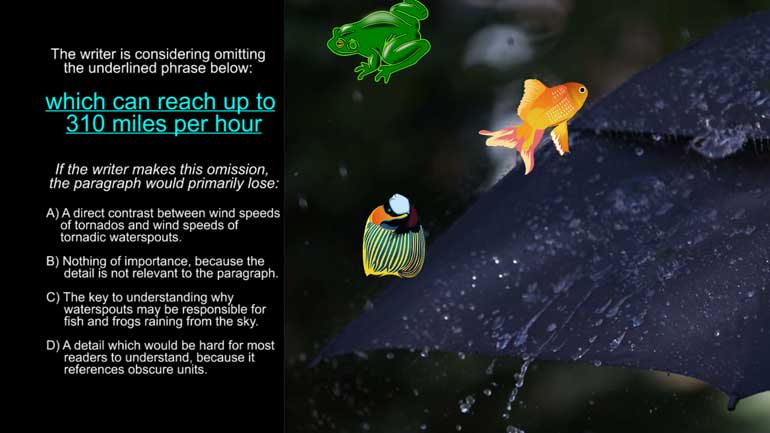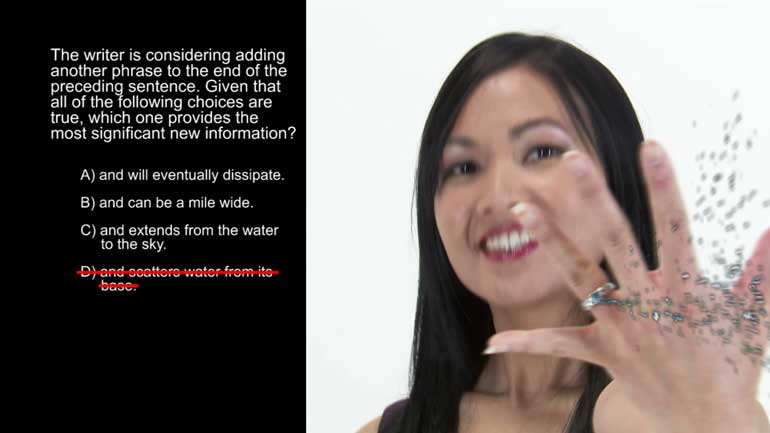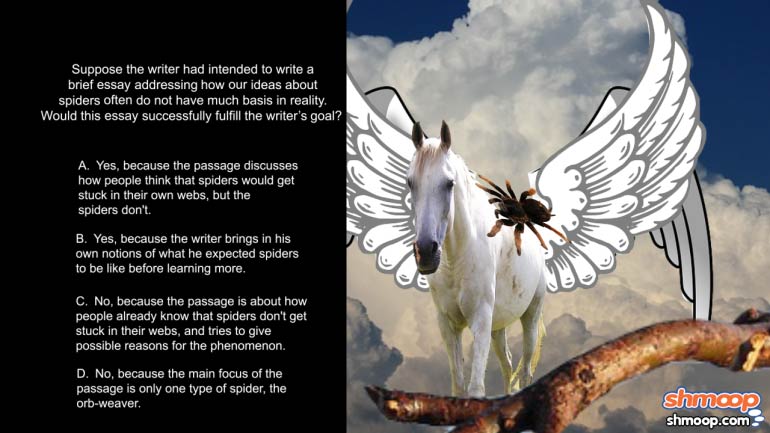ShmoopTube
Where Monty Python meets your 10th grade teacher.
Search Thousands of Shmoop Videos
Strategy Videos 7 videos
ACT English: Passage Drill 2, Problem 11. Which of the following sentences would make the most effective transition?
In this ACT English passage drill determine if the writer of the passage may or may not have achieved their proposed goal.
ACT English: Passage Drill Drill 3, Problem 2. What would the paragraph lose if the writer omits the underlined phrase?
ACT English 3.9 Passage Drill 201 Views
Share It!
Description:
ACT English: Passage Drill Drill 3, Problem 9. Which choice provides the most significant new information?
Transcript
- 00:03
Here's your Shmoop du jour, brought to you by storms of fish. Bad for fish, great for grizzly bears.
- 00:12
Check out the following passage...
- 00:20
The writer is considering adding another phrase to the end of the preceding sentence.
- 00:25
Given that all of the following choices are true, which one provides the most significant new information?
- 00:37
The correct answer will boast information that's found nowhere else in the passage.
Full Transcript
- 00:37
The correct answer will boast information that’s found nowhere else in the passage.
- 00:40
So all we have to do is scan through the passage and check to see which of these phrases is
- 00:43
redundant and which adds something new.
- 00:46
Choice (D) can go because the sentence, itself, mentions a "ring of spraying water."
- 00:50
We're no experts, but if this thing is spraying water, it's guaranteed to be scattering it as well.
- 00:54
Option (C) fills us in on how the funnels extend from the water to the sky.
- 00:58
It didn't need to bother, though, because the very next sentence tells us the same thing.
- 01:01
Too bad, (C), we've heard it all before.
- 01:03
Choice (A) is more of a challenge to eliminate. The word "dissipate" doesn't actually
- 01:07
appear anywhere in the passage. However, when something "dissipates" it disperses and
- 01:12
disappears. The molecules it's made of go their separate ways, and it is no more.
- 01:17
This goes along with the section in Paragraph 3 that describes waterspouts losing their
- 01:21
energy and raining objects back to the earth. The correct answer is (B), which gives us
- 01:25
new information by telling us that the "mature" waterspout can be a mile wide.
- 01:29
A mile wide? Maybe it should think about low fat frogs next time.
Related Videos
ACT English: Punctuation Drill 2, Problem 2. Where should the semi-colon be placed?
ACT English: Punctuation Drill 3, Problem 1. How should this sentence be changed so that it is grammatically correct?
ACT English: Punctuation Drill 3, Problem 2. How should we properly hyphenate the words in this sentence?
ACT English: Punctuation Drill 3, Problem 4. Which choice best formats this list of items?
ACT English: Punctuation Drill 2, Problem 1. Which choice of punctuation best completes the sentence?











